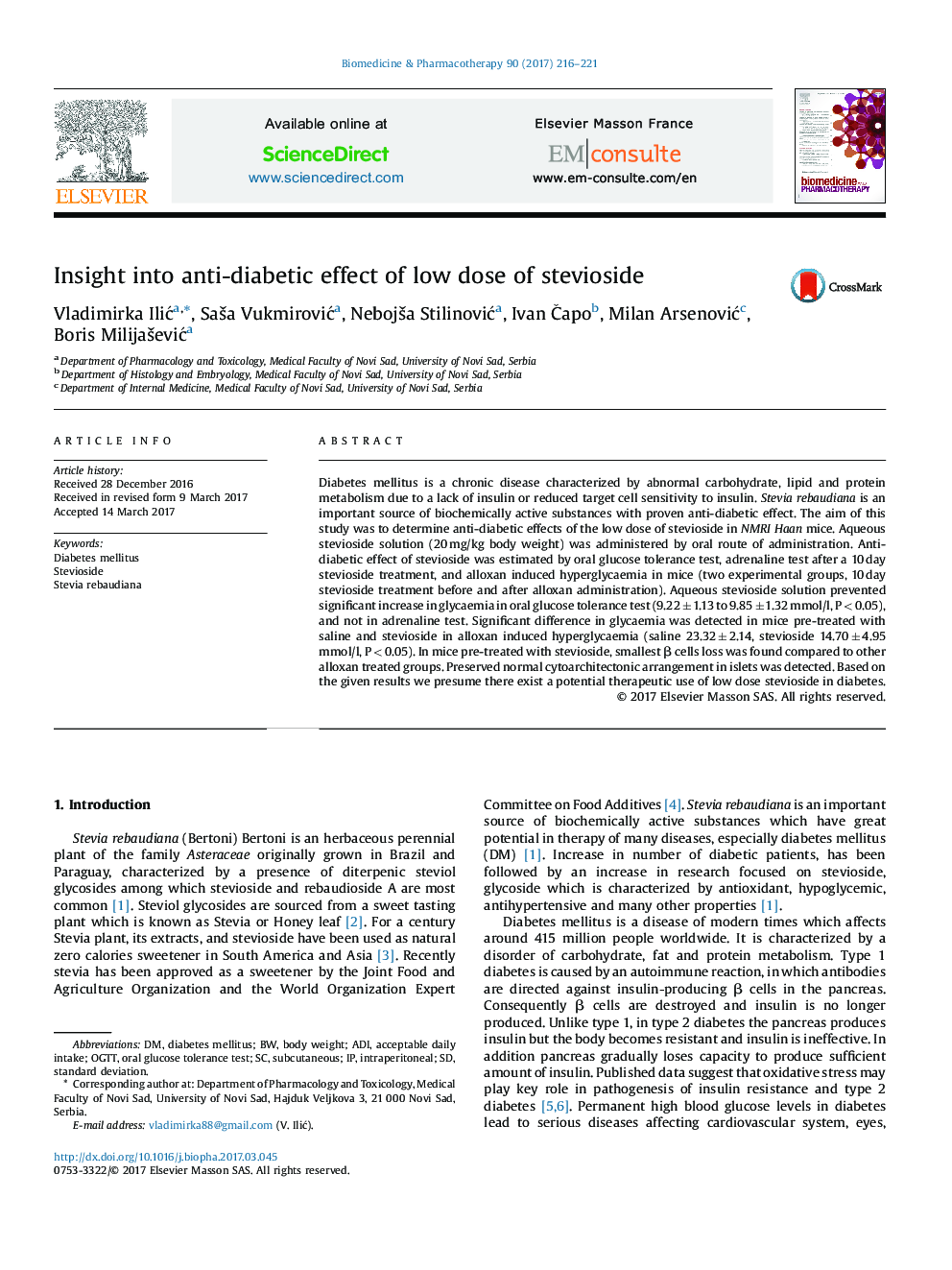| Article ID | Journal | Published Year | Pages | File Type |
|---|---|---|---|---|
| 5553036 | Biomedicine & Pharmacotherapy | 2017 | 6 Pages |
Diabetes mellitus is a chronic disease characterized by abnormal carbohydrate, lipid and protein metabolism due to a lack of insulin or reduced target cell sensitivity to insulin. Stevia rebaudiana is an important source of biochemically active substances with proven anti-diabetic effect. The aim of this study was to determine anti-diabetic effects of the low dose of stevioside in NMRI Haan mice. Aqueous stevioside solution (20 mg/kg body weight) was administered by oral route of administration. Anti-diabetic effect of stevioside was estimated by oral glucose tolerance test, adrenaline test after a 10 day stevioside treatment, and alloxan induced hyperglycaemia in mice (two experimental groups, 10 day stevioside treatment before and after alloxan administration). Aqueous stevioside solution prevented significant increase in glycaemia in oral glucose tolerance test (9.22 ± 1.13 to 9.85 ± 1.32 mmol/l, P < 0.05), and not in adrenaline test. Significant difference in glycaemia was detected in mice pre-treated with saline and stevioside in alloxan induced hyperglycaemia (saline 23.32 ± 2.14, stevioside 14.70 ± 4.95 mmol/l, P < 0.05). In mice pre-treated with stevioside, smallest β cells loss was found compared to other alloxan treated groups. Preserved normal cytoarchitectonic arrangement in islets was detected. Based on the given results we presume there exist a potential therapeutic use of low dose stevioside in diabetes.
